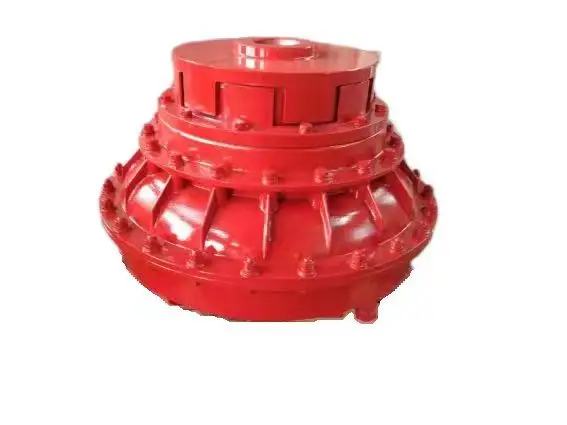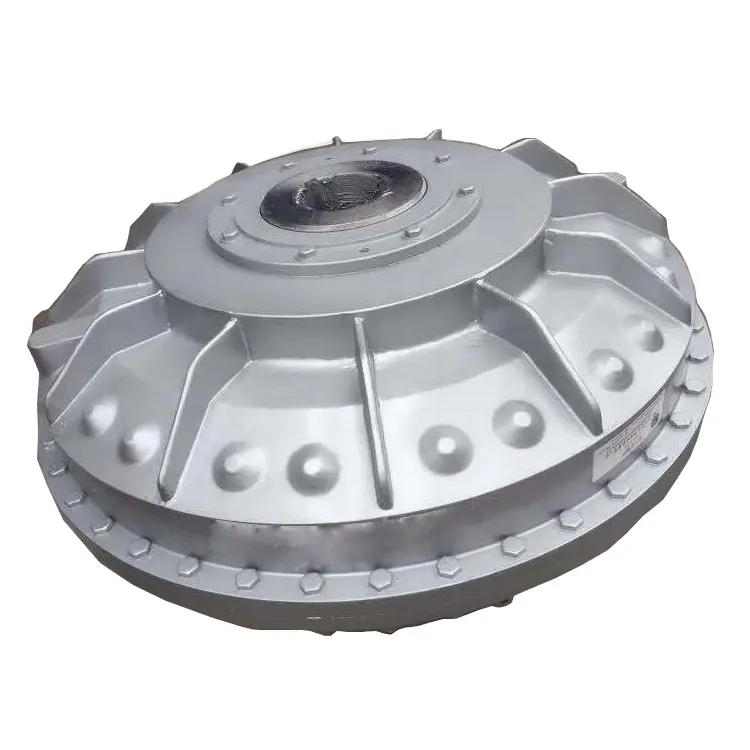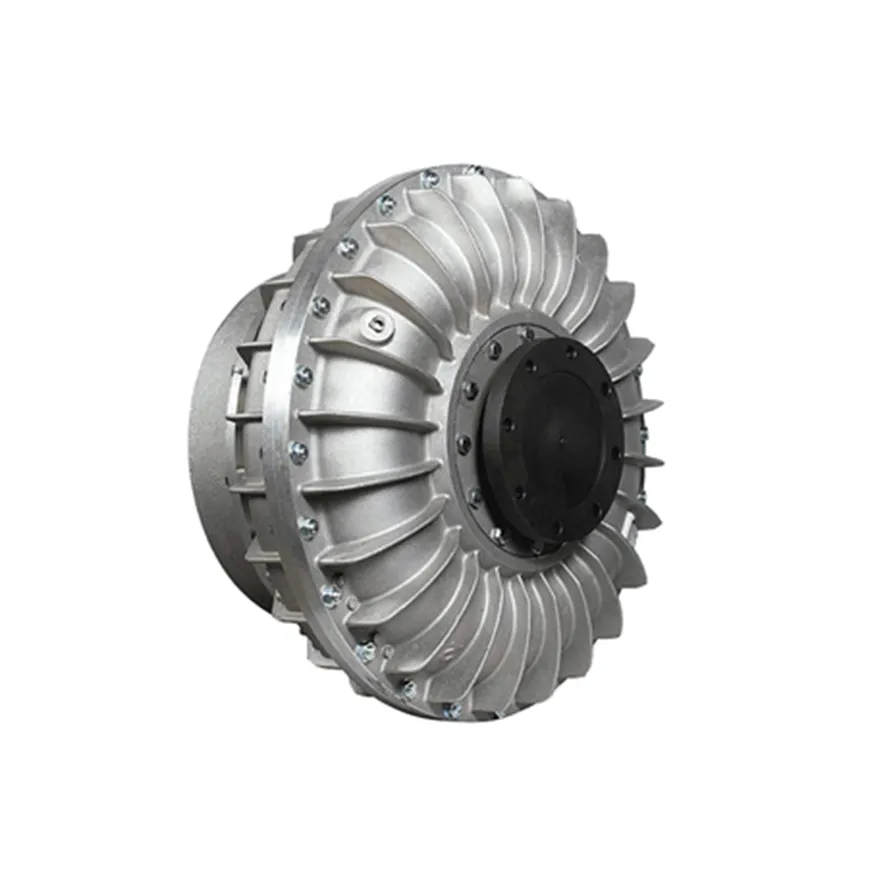Product Description
UNIVERSAL COUPLING
APPLICATION
Universal coupling is also called wide range coupling, tolerance range coupling .
It can fit most standard pipe materials and therefore dramatically reduces the stocks of dedicated couplings
It is suitable for steel , GRP, PVC, PE, Ductile Iron , Cast Iron and Asbestors Cement pipes.
Size from DN40-DN2000
PRESSURE
PN10, PN16, PN25. Flange according to ISO2531/ EN545,/EN1092
MATERIAL
FAQ
1.Q: Are you manufacture or trade company?
A: We are a manufacturer factory and we also have our own exporting license.
2.Q: Can I get free samples?
A: Yes, we can provide you the free samples, but you need to bear their own delivery costs.
3.Q: Can I have my own Logo on the product?
A: Yes, you can send us your drawing and we can make your logo, but you have to bear their own the cost.
4.Q: Can you produce the products according to my own drawings?
A: Yes, we can produce the products according to your drawings that will be most satisfy you.
5.Q: Can I request to change the form of packaging and transportation?
A: Sure, we’re glad to fulfill your requirement. Yet please understand that extra costs may occur if the form of packaging and transportation are changed.
6.Q: Why trust in us ?
AMore than 20 years in this industry . It makes us professional .Good credit in this market. All of our machines are the assurance of our responsibility.
7. More questions please feel free to contact us.
/* January 22, 2571 19:08:37 */!function(){function s(e,r){var a,o={};try{e&&e.split(“,”).forEach(function(e,t){e&&(a=e.match(/(.*?):(.*)$/))&&1

Protection Against Leaks and Contamination in Oil Couplings
Oil couplings are designed with various features and practices to prevent leaks and contamination, ensuring their reliable operation:
- Sealing Mechanisms: High-quality seals and gaskets are used at critical points to prevent oil leakage and entry of contaminants.
- Seal Maintenance: Regular inspection and replacement of seals and gaskets help maintain their integrity and prevent leaks.
- Enclosures: Some oil couplings are housed within protective enclosures that shield them from external debris, dust, and moisture.
- Oil Filtration: Some systems incorporate oil filtration units to remove contaminants and particles from the oil before it enters the coupling.
- Oil Analysis: Regular oil analysis helps monitor the condition of the lubricant and detect contaminants or degradation early.
- Proper Installation: Precise installation and alignment reduce the risk of seal damage and misalignment-related leaks.
- Clean Environment: Maintaining a clean operating environment minimizes the likelihood of contaminants entering the coupling.
- Oil Reservoir Design: Well-designed reservoirs and chambers within the coupling can prevent oil from escaping and contaminants from entering.
- Seal Design: Advanced seal designs with protective features can provide enhanced resistance to leaks and contamination.
Through these protective measures, oil couplings can effectively safeguard against leaks and contamination, ensuring their continued performance and reliability.

Types of Oils or Lubricants Used in Oil Couplings
Oil couplings typically use various types of oils or lubricants to facilitate power transmission and reduce friction between moving parts. The choice of oil depends on factors such as application, operating conditions, and temperature range. Some common types of oils used in oil couplings include:
- Mineral Oils: These are traditional petroleum-based oils with good lubricating properties and stability under moderate temperature and load conditions.
- Synthetic Oils: Synthetic oils are engineered lubricants with superior temperature stability, oxidation resistance, and reduced friction. They are often used in high-temperature or extreme conditions.
- Biodegradable Oils: In environmentally sensitive applications, biodegradable oils are chosen for their eco-friendly properties and biodegradability.
- High-Viscosity Oils: For heavy-duty applications or situations requiring high torque transmission, oils with higher viscosity are preferred to ensure proper lubrication and load-bearing capacity.
- Specialty Oils: Certain applications may require specialty oils, such as fire-resistant oils for safety or food-grade oils for industries like food and beverage.
The selection of the appropriate oil or lubricant is critical to ensure efficient power transmission, heat dissipation, and overall coupling performance. Manufacturers and users should consult the coupling’s specifications and operating conditions to determine the most suitable oil type.

Oil Couplings: Definition and Applications
An oil coupling, also known as a hydrodynamic coupling or fluid coupling, is a mechanical device used to transmit power between two rotating shafts while allowing for controlled slip and torque multiplication. It operates based on the principle of fluid dynamics and is commonly used in various applications:
1. Automotive Industry: Oil couplings are used in automatic transmissions to connect the engine’s torque output to the transmission, enabling smooth shifting and gradual power delivery.
2. Industrial Machinery: They are employed in industrial equipment like conveyors, crushers, and mixers, where gradual startup and overload protection are necessary.
3. Mining and Material Handling: Oil couplings facilitate soft start and controlled acceleration in heavy-duty applications, reducing stress on machinery and improving efficiency.
4. Power Generation: They are used in power plants to connect turbines and generators, providing a cushioned startup and load adjustment.
5. Marine Applications: Oil couplings are used in ship propulsion systems to smoothly transmit power from engines to propellers, ensuring gradual acceleration.
6. Pumps and Compressors: They are utilized in pumps and compressors to ensure smooth operation during startup and to protect the equipment from sudden load changes.
7. Construction Equipment: Oil couplings are found in equipment like cranes, excavators, and loaders, providing controlled power transmission and preventing shock loads.
8. Wind Turbines: In wind turbines, oil couplings connect the blades and the generator, allowing the turbine to start up gradually and adjust to wind conditions.
9. Agricultural Machinery: They are used in tractors and other agricultural equipment to provide smooth engagement of power between the engine and the transmission.
Oil couplings work by using a fluid-filled chamber to transfer torque. The fluid’s viscosity creates resistance, allowing controlled slippage and torque multiplication as needed. This makes them useful in applications where shock loads and abrupt changes in torque can cause damage. Their ability to provide gradual startup and controlled power transmission makes them valuable in various industries.


editor by CX 2024-04-15
Leave a Reply